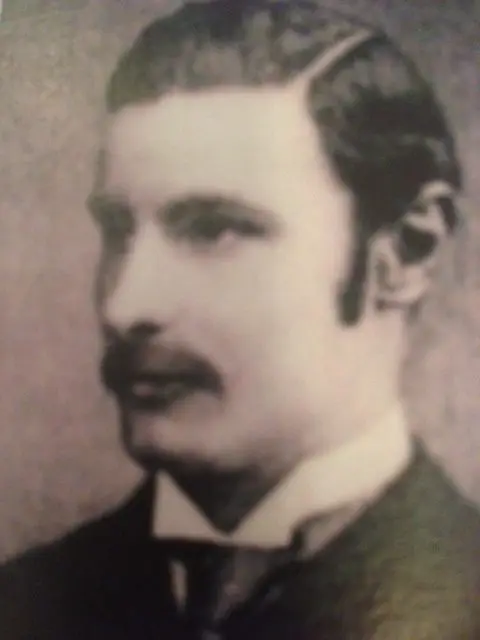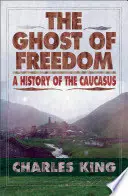
Lloyd H Fox was the 2nd cousin 1x removed of Harry Fox
Mount Fox in the Canadian Selkirk range is named in hos honour.
source: wikipedia
Henry “Harry” Fox (30 September 1856 – on or after 30 August 1888) was an English gentleman who was a sportsman and adventurer. He played cricket and rugby for his county, and began climbing mountains in the mid-1880s. He was part of the Fox family of Wellington, Somerset, and was a partner in the family business, Fox Brothers, a prominent textile manufacturer.
Fox played and financed cricket and rugby in Somerset; he played cricket for Somerset County Cricket Club from 1877 to 1882, and remained as a vice-president of the club until his death. He founded Wellington Rugby Football Club in 1874, and was an administrator and captain of the Somerset Rugby Football Union. After retiring as a rugby player, he continued to take part as an umpire. In 1884 he started mountaineering, and within two years he was well-known in the mountain climbing community, and a well-regarded alpine explorer. In 1888, he travelled with William Frederick Donkin to the Caucasus Mountains in the Russian Empire in a bid to be the first people to climb Koshtan-Tau, but the pair, along with their Swiss guides, died in an accident.
Early life and sporting exploits
Henry Fox was born on 30 September 1856 as the second son of Dillworth Crewdson and Mary Augusta.[1][2] He was educated at Sherborne School,[3] and was part of the Fox family which owned Fox Brothers, of which he became a partner.[4] In 1874, he founded Wellington Rugby Football Club,[5] and three years later he was the honorary secretary, treasurer and captain of the Somerset county rugby football team upon its formation. He was captain in both 1877 and 1878, playing as a three-quarter back, and remained secretary and treasurer until 1882.[6] He remained in the game after his retirement from playing as an umpire, officiating in his final match in 1887, between Somerset and Yorkshire.[7]
As well as rugby, he also played cricket for his county, first appearing for Somerset County Cricket Club in 1877 during a match against Wiltshire. He tended to play as a lower-order batsmen for the county, for whom his highest score against county opposition was 42 runs, made against Kent in 1881, prior to Somerset’s elevation to first-class status.[8] In June 1882, he was part of the Somerset team that competed in first-class cricket for the first time, losing by an innings and 157 runs to Lancashire; Fox scored no runs in either innings, and did not bowl.[9] He made two further first-class appearances that season, and did not appear for Somerset again, due to business engagements.[7] In all, he scored sixteen runs in first-class matches for Somerset at an average of 2.66.[1] Despite retiring as a player, Fox continued to provide financial support to the cricket club, and remained a vice-president until his death.[7]
Fox was also a keen mountaineer; having started mountain climbing in 1884, he joined the Alpine Club the following year. He received instruction initially from William Woodman Graham and then William Cecil Slingsby.[2] According to an article in The Times, he was well regarded by his peers as “a climber of great skill and daring”.[10] He was a very experienced alpine climber, and often climbed without guides, ascending Aiguille du Dru, Fletschhorn, Ober Gabelhorn amongst others in this fashion. With guides, he climbed some of the toughest mountains in the Alps, such as the Matterhorn and the Eiger.[10]
Death in the Caucasus Mountains
Fox left Wellington in late July,[4] joining up with William Frederick Donkin and Clinton Dent to go climbing in the Caucasus Mountains in the Russian Empire. The three were aiming to become the first climbers to scale Koshtan-Tau,[a] one of the few mountains in the region yet to be scaled. The three started from Nalchik, though Dent was forced to return home due to ill-health, leaving Fox and Donkin to attempt the climb, along with two Swiss guides. Their initial plan was to climb a glacier on the northern slopes of the mountain, and then make their final ascent on the western side. However, a rock wall on the western slopes prevented this, and they changed their plans to attack the mountain from the east. They planned to meet up with their outfitter to the south-east of the mountain, but after they missed that meeting, a message was sent back to Dent reporting the climbers missing.[12] The Times reported on 6 October that Donkin and Fox, along with their guides, had suffered a mountaineering accident that had led “to the almost certain loss of four lives”.[13]
Searches were carried out, including one on the direct order of Tsar Alexander III, but no evidence was found. The Russians did recover items from the climber’s base camp, including Fox’s diary. Russian authorities, possibly for political reasons, claimed that the party probably strayed into Svaneti, in Georgia, and been murdered by the local population, who had rebelled against the Russians not long before.[12] In 1889, Dent and Douglas Freshfield led an expedition to search the area; although they were unable to find any remains, they did discover a bivouac at around 14,000 feet (4,300 m) on the Ullu-auz pass between two glaciers.[12][14] They recovered a number of personal items from the camp, but found that light climbing gear—rope, ice axes and a camera—were missing. The search party concluded that Donkin and Fox had continued their climb, intending to return to the bivouac, but fallen while navigating a narrow ridge higher up the mountain. Such a fall would have been thousands of feet, and the winter snow would have covered the climbers’ bodies, so despite conducting a search of the valley floor, no bodies were recovered.[12]
For the purposes of his will, Fox’s death was recorded as being “on or since the 30th August, 1888, at some place unknown.” The value of his personal estate was just over £7,639, and as he was not married nor had children, his estate was shared between his eldest brother, Charles Dillworth, and his four sisters, Sarah, Anna, Alice and Louisa.[15] A cricket pavilion was erected in his memory at Wellington Cricket Club in Somerset,[16][17] and a mountain in the Dawson Range in Canada was named Mount Fox in his honour.[18]
Notes
a Some sources state that they were climbing Dykh-Tau, another mountain in the Caucasus; Douglas Freshfield explains this variation as being due to the names of the mountains being reversed; so what is now known as Koshtan-Tau used to be Dykh-Tau, and vice versa.[11]
1 a b “Player profile: Henry Fox”. CricketArchive. The Cricketer Publishing Ltd. Retrieved 8 October 2015.
2 a b “The Late Mr Harry Fox”. Bristol Mercury. 17 December 1888. p. 8 – via British Newspaper Archive. (subscription required (help)).
3 Roebuck, Peter (1991). From Sammy to Jimmy: The Official History of Somerset County Cricket Club. London: Partridge Press. p. 29. ISBN 1-85225-085-2.
4 :a b “Mr Fox, of Wellington, Missing in Russia”. Taunton Courier. 10 October 1888. p. 6. Retrieved 8 October 2015 – via British Newspaper Archive. (subscription required (help)).
5 “Historical Rugby Milestones 1870s”. RugbyFootballHistory.com. Retrieved 8 October 2015.
6 “Handbook: Season 2014–2015” (PDF). Somerset County Rugby Football Union Limited. p. 24. Retrieved 8 October 2015.
7:a b c “Lost in the Caucasus”. Bristol Mercury. 5 October 1888. p. 5 – via British Newspaper Archive. (subscription required (help)).
8 “Somerset v Kent: Other matches in England 1881”.CricketArchive. The Cricketer Publishing Ltd. Retrieved8 October 2015.
9 “Lancashire v Somerset: County Match 1882”.CricketArchive. The Cricketer Publishing Ltd. Retrieved8 October 2015.
^10 :a b “The letter which we print this morning from”. The Times(32510) (London). 6 October 1888. p. 9 – via Gale. (subscription required (help)).
11 Freshfield, Douglas (1896). The Exploration of the Caucasus. London and New York: Edward Arnold. p. 26.OCLC 3557546.
12:a b c d King, Charles (2008). The Ghost of Freedom: A History of the Caucasus. Oxford: Oxford University Press. pp. 128–33.ISBN 978-0-19-517775-6.
13 “Mountaineering Accident in the Caucasus”. The Times(32510) (London). 6 October 1888. p. 10. Retrieved 8 October2015 – via Gale. (subscription required (help)).
14 “Explorations and Ascents in the Caucasus in 1889”.Proceedings of the Royal Geographical Society and Monthly Record of Geography (Wiley, on behalf of Royal Geographical Society) 11 (11): 671–6. November 1889.doi:10.2307/1801029 – via JSTOR.
15 “Will of the late Mr. Henry Fox”. Western Times. 10 May 1889. p. 8. Retrieved 8 October 2015 – via British Newspaper Archive. (subscription required (help)).
16 “Local News”. Western Times. 12 March 1889. p. 7 – via British Newspaper Archive. (subscription required (help)).
17^ “Local news”. Western Times. 18 July 1889. p. 2 – via British Newspaper Archive. (subscription required (help)).
18 Boles, Glen W.; Laurilla, Roger W.; Putnam, William (2006).Canadian Mountain Place Names: The Rockies and Columbia Mountains. Surrey, British Columbia: Rocky Mountain Books. p. 101. ISBN 978-1-894765-79-4.

source: The Ghosts of Freedom by Charles King p 128 -133
click on image to read account of the search for the lost climbers
Also: Tragedy in the Caucasus. The Last Diary of Harry Fox Paperback – 2003 Edited By Gerald Franklin